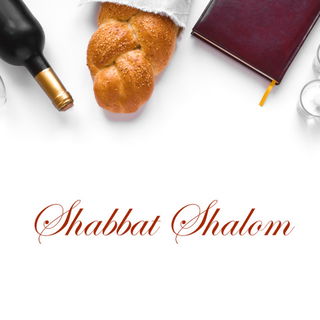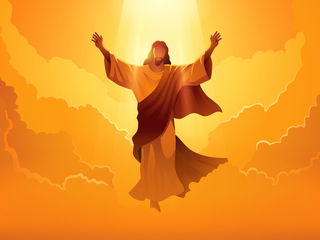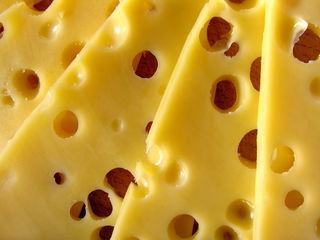The Sabbath is a day of rest. It begins on Friday evening and ends on Saturday night. It is a Jewish tradition that mirrors and originates in the story of creation. Jews traditionally rest on the Sabbath since God rested on the seventh day of creation. The custom has had an influence on language and culture across the world.
The Meaning of the word Sabbath
The word Sabbath originates in the Hebrew language. It is derived from the word "Shabbat," which means "to cease" or "to rest." In modern times we use the term Sabbath to refer to a specific day of the week when people take a break from their regular activities and dedicate the time to rest, reflection, and spiritual pursuits.

Meaning of Sabbath in the Bible
The Sabbath being a day of rest has a direct link to the story of the creation of the universe during which God created light, day and night, animals, people, and everything else.
1 Thus the heavens and the earth were completed in all their vast array.
2 By the seventh day God had finished the work he had been doing; so on the seventh day he rested from all his work. 3 Then God blessed the seventh day and made it holy, because on it he rested from all the work of creating that he had done.
NIV Genesis 2:1-3
The word "Sabbath" first appears in the Hebrew Bible in the Book of Exodus. In Exodus 16:23, during the Israelites' journey in the wilderness, Moses instructs them regarding the gathering of manna, a miraculous food provided by God. He tells them that on the sixth day, they should gather twice as much manna because the following day, the Sabbath, would be a day of rest and no manna would be provided. This passage indicates the early recognition and observance of the Sabbath as a day of rest among the Israelites.
He said to them, “This is what the Lord commanded: ‘Tomorrow is to be a day of sabbath rest, a holy sabbath to the Lord. So bake what you want to bake and boil what you want to boil. Save whatever is left and keep it until morning.’”
NIV Exodus 16:23
Sabbath is later mentioned in the Book of Exodus and other books such as Leviticus and Deuteronomy. These texts lay out the rules and regulations of how to behave on the Sabbath, what is and what isn't acceptable.
The Influence of Sabbath on Language
An association can be found between the name of the day Saturday and the word "Sabbath" in many countries across the world, here are a couple of examples:
-
Spanish: The Spanish word for Saturday is Sábado, which directly corresponds to the word Sabbath. The Portuguese word for Saturday is the same: Sábado.
-
Similarly, in Italian, Saturday is called Sabato.
-
In Greek, the word for Saturday is Sabbato which very closely resembles the Hebrew word Shabbat, the root word of Sabbath.
While some languages show a connection to Sabbath, this is not true of English and other European languages, which show their connection to the Roman God Saturn (Saturday), and possibly the French word Samedi, which may come from the Latin dies Saturni.
How to Celebrate Sabbath Today
There are many ways to celebrate Sabbath, although traditionally and typically they will carry religious significance. It has also evolved into a secular practice centered around rest, rejuvenation, and spending quality time with loved ones.
Family and togetherness play a significant role in Sabbath celebrations. Many gather with loved ones, sharing meals and engaging in meaningful conversations. The emphasis is on making connections and strengthening relationships. Technology is often minimized during Sabbath to promote genuine human interaction and uninterrupted quality time.
Acts of kindness are often incorporated into Sabbath observance. People may volunteer in their communities, engage in charitable deeds, or extend hospitality to others. The spirit of generosity and compassion is embraced as a way to make a positive impact on the world.

Four Sabbath Customs
Here are some fascinating facts about the Sabbath which demonstrate the richness of the customs observed by communities around the world:
-
Sabbath bread - In the Jewish Sabbath tradition, the shape and braiding of the challah bread hold special significance. They can be braided with three, six, or even twelve strands, symbolizing various aspects like truth, peace, and the twelve tribes of Israel.
-
The Eruv: In some Jewish communities, an eruv is established to allow for certain activities typically restricted on Sabbath. This enclosed area is often marked by a symbolic boundary marked by poles and wires. They transform separate spaces into one domain where people can carry objects, push strollers, and do other things that would otherwise be prohibited on the Sabbath.
-
The Shabbat Elevator: In buildings with a large Jewish population you might find a "Shabbat elevator." These special elevators stop automatically on every floor, allowing people to use them without pressing any buttons, which is considered work and prohibited on Sabbath.
-
Havdalah Ceremony: At the end of the Sabbath, a unique ceremony called "Havdalah" takes place. Havdalah involves lighting a multi-wicked candle, smelling spices, and sipping from a cup of wine. These rituals symbolize the separation between the sacred time of the Sabbath and the ordinary week ahead.
To learn more about Shabbat and other Jewish holidays try the following:











